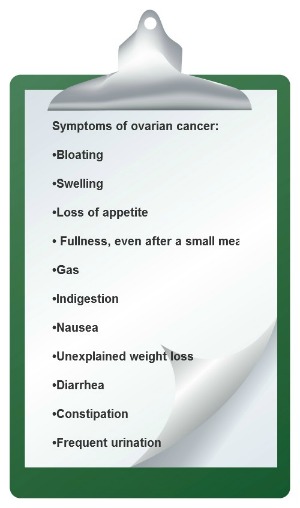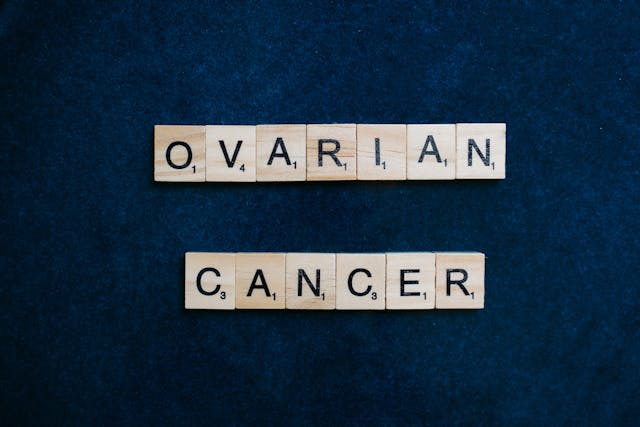Ovarian cancer is often called the “silent” cancer because the symptoms can be vague or only a “whisper”, often going unnoticed until the disease has progressed to an advanced stage. Early detection is especially important for ovarian cancer to ensure the most effective treatment. You can help protect yourself by knowing your body and recognizing symptoms early.
What is Ovarian Cancer?
Ovarian cancer involves cancer of the ovaries, the organs (located on each side of the uterus) that produce female hormones and store eggs. The risk of ovarian cancer increases every time a woman ovulates, making women who are pregnant or have been pregnant, breastfeeding or taken birth-control pills at a reduced risk for developing the disease.
What to watch for
Ovarian cancer is often described as the “silent” cancer because it rarely is accompanied by symptoms until it is in its advanced stages. Symptoms can disguise themselves or lead women to believe that their discomfort is common and nothing more than normal daily aches and pains.
Contrary to what some women believe, a Pap test rarely detects ovarian cancer (because it is a screening test for cervical cancer), so it’s important to pay attention to warning signs. Know your body and track your symptoms. If symptoms are persistent, contact your doctor for further testing.
 At the forefront of cancer care
At the forefront of cancer care
More cases of gynecologic cancer, including ovarian, are diagnosed and treated at Northside Hospital than at any other hospital in Georgia. Northside was the first in Georgia to perform robotic radical hysterectomy for gynecologic oncology patients and ranks in the top 5 percent of all robotic GYN programs in the country. The hospital also offers genetic testing for families with a history of ovarian cancer and participates in multiple oncology research programs and clinical trials, some of which often are found only at large academic medical centers and research universities.
As an NCI Community Cancer Centers Program, the hospital offers a comprehensive treatment process that encompasses education, prevention, screening, diagnosis, treatment, research, support and survivorship.
For more information about Northside Hospital’s Gynecologic Cancer Program, including latest treatment options and how to determine your hereditary risk, visit www.northside.com.



